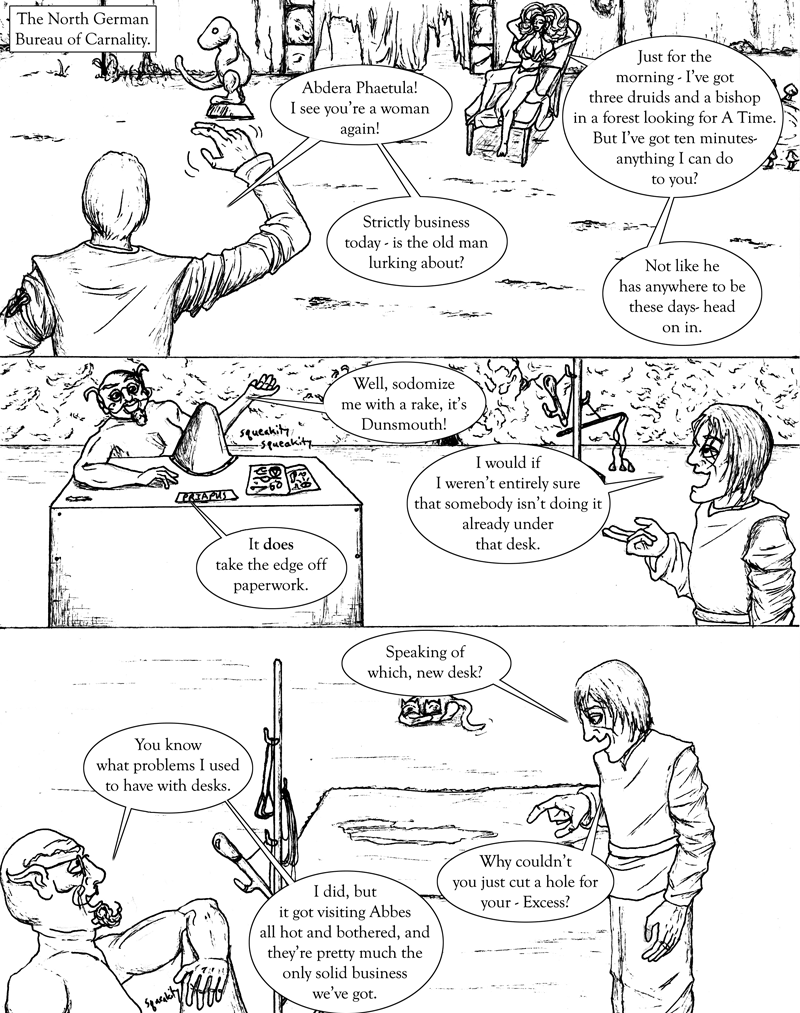|
Excersus CI: Phallo-Ergo-Nomics




The Argument From Authority took a loooong time to die. The Faculty of Paris was still denying the existence of the circulation of the blood in the mid 18th century because it wasn't in Galen. When casting about for some demoness to be lolling about in front of the bureau, I had at hand Lodovico Sinistrari's late 17th century Demoniality, which referenced Francesco Guazzo's 1608 Compendium Maleficarum, which itself relies for most of its proof on stories that the author comes across in our very own Malleus Maleficarum of the fifteenth century, as well as anecdotes from Hippocrates, Pindar, and other writers of antiquity. For a millenium and a half, this was how argumentation and scientific inquiry were done. The raw power of modern science comes from the wedding of the rigor of Greek Mathematics to the experimental imperatives of the innovators in the 17th century (Gilbert, Vesalius, Harvey, and their crowd).
Some take this as a sign that Science Isn't Scientific, because it didn't emerge like Athena onto the world stage and immediately produce theories according to the current scientific method. It is just another language game, like poetry or metaphysics, these critics of the Scientific Revolution say, reliant as much upon intuition and accident as on its beloved rigor and method. This is missing the point - the scientific method doesn't dictate HOW you have an idea, or WHY you were looking for a particular answer, and nobody has ever said that it did. To flap one's wings about Kepler's mysticism or Newton's alchemy doesn't speak to anything. Many of my ideas come to me in the shower, not when I am in my study contemplating a bust of Homer... does that make them less Literary? Where the scientific method departs from those other disciplines of language usage is in What You Do Once The Idea Is Had. Let the idea come from where it may, it must now pass the gauntlet of scientific investigation, a way of treating ideas that was unique on the face of the Earth. That process, once worked through to its modern form, allowed questions that had been referred to Livy for millenia (Such as Guazzo's "Can Women spontaneously change into men and back again at will?") to be mercilessly wrestled with, so that a single decade could reveal to us more of our world and ourselves than the thousands of years preceding it.
- Count Dolby von Luckner
|